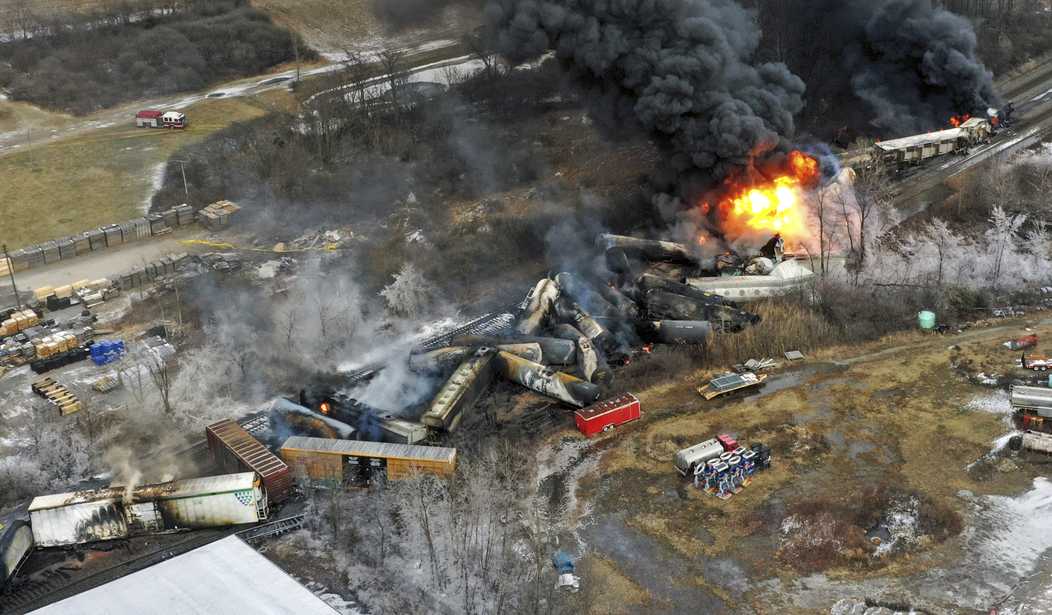Move over “died suddenly,” because “train carrying hazardous materials derails” is quickly becoming the most common story to pop up in our news feeds.
As per local reports, a train belonging to Canadian Pacific, consisting of 70 cars transporting hazardous materials, derailed late Sunday night in North Dakota, approximately one mile southeast of Wyndmere in Richland County at around 11:15 p.m. According to the report, 31 of the 70 cars derailed, and some were found to be leaking petroleum used in the production of asphalt. No injuries have been reported.
Officials said crews will wait for the cold weather to solidify the leaked material, which is expected to transform into a gel.
Related: Three Train Derailments and a Developing Bio-Disaster — Where Are the Eco-Harpies?
As worries about railroad safety persist in the United States, the recent incident in North Dakota is the latest in a string of train derailments.
In February, a significant event occurred in East Palestine, Ohio, where around 50 cars derailed, resulting in the spillage of hazardous materials and the evacuation of residents. The Biden administration was widely criticized for its feeble response to the disaster. Similarly, a few weeks later, a train carrying hazardous materials derailed in Gothenburg, Neb.
There are suggestions that these recent train derailments are happening more frequently than usual, but it’s possible that the heightened attention is due to the East Palestine disaster. Similarly, concerns were raised last year about the frequency of fires occurring at food processing plants, which added to the supply chain crisis that was already problematic.
“So, industrial accidents happen, of course,” Fox News’s Tucker Carlson observed last year, “but this is a lot of industrial accidents at food processing facilities at the same time the president is warning us about food shortages.”
“Obviously, when something happens every so often, you obviously hope that there is no significant damage and certainly that no one gets hurt, but you kind of write it off, it’s not that big of a deal, accidents happen,” noted Carlson. “But when you’ve got well over a dozen food processing plants and warehouses getting destroyed or seriously damaged over just the last few weeks at a time when the food supply is already vulnerable, it’s obviously going to be suspicious, and it could lead to serious food shortages.”
Following the East Palestine derailment, Transportation Secretary Pete Buttigieg defended the administration’s response by citing statistics that suggest there are approximately 1,000 train derailments per year, or around 2.7 per day. However, it is likely that the majority of these are minor incidents, such as wheel slippage, that do not result in a train crashing to the ground.










Join the conversation as a VIP Member